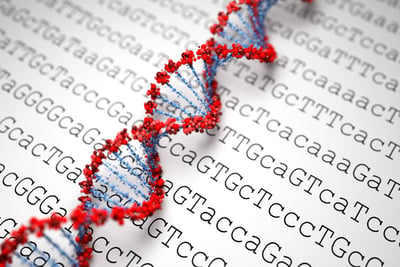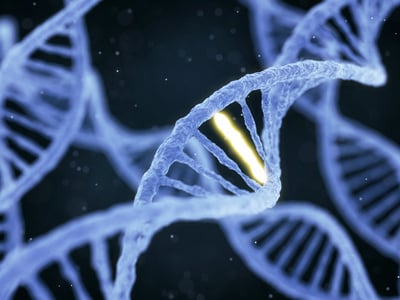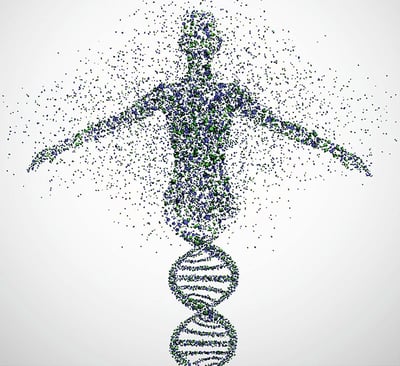FORCE's eXamining the Relevance of Articles for You (XRAY) program looks behind the headlines of cancer news to help you understand what the research means for you.
XRAY is a reliable source of hereditary cancer research-related news and information.
Learn more about the XRAY program
Keyword: CHEK2
Relevance: High


Research Timeline: Post Approval


Update : PARP inhibitors, rucaparib (Rubraca) and olaparib (Lynparza) receive FDA approval for metastatic prostate cancer
Most relevant for: Men with metastatic castration-resistant prostate cancer who have certain inherited or tumor mutations in DNA repair genes
The FDA approved two PARP inhibitors, rucaparib (Rubraca) and olaparib (Lynparza) for treatment of metastatic castration-resistant prostate cancer (mCRPC) in men who have certain inherited mutations or tumor mutations. (6/1/20)
Read More
Relevance: High


Strength of Science: Medium-High


Study : Racial and ethnic differences in genetic testing among young breast cancer survivors
Most relevant for: Women diagnosed with breast cancer at age 50 or younger
Genetic testing is recommended for most women who are diagnosed with breast cancer at age 50 or younger. In this study of young women with breast cancer, while the rates of genetic testing did not differ, the rates of women testing positive for an inherited mutation associated with breast cancer did vary between racial and ethnic groups. (2/27/20)
Este artículo está disponible en español.
Read More
Relevance: Medium-High


Strength of Science: Medium


Research Timeline: Post Approval


Study : Inherited mutations in metastatic breast cancer patients
Relevance: Medium-High


Strength of Science: Medium


Research Timeline: Post Approval


Most relevant for: People with metastatic breast cancer
Recent research shows that a significant portion of patients with metastatic breast cancer have harmful mutations in a gene associated with hereditary breast cancer and increased breast cancer risk. (9/26/19)
Read More
Relevance: Medium-High


Research Timeline: Post Approval


Guideline : Breast surgeons recommend genetic testing for all breast cancer patients
Relevance: Medium-High


Research Timeline: Post Approval


Most relevant for: Anyone diagnosed with breast cancer
The American Society of Breast Surgeons published statement on genetic testing for hereditary breast cancer on February 10, 2019. It includes recommendations about who should be tested. Among these is the recommendation that all breast cancer patients get genetic testing, as well as women who do not have breast cancer but fit the National Comprehensive Cancer Network (NCCN) guidelines. (3/25/19)
Read More
Relevance: Medium-High


Strength of Science: High


Research Timeline: Post Approval


Study : Inherited breast cancer in Nigerian women
Relevance: Medium-High


Strength of Science: High


Research Timeline: Post Approval


Most relevant for: Nigerian women or women of Nigerian descent who have breast cancer
A new study shows that among Nigerian women, one in eight cases of breast cancer is due to an inherited mutation in BRCA1, BRCA2, PALB2 or TP53. (12/5/18)
Read More
Relevance: Medium-High


Strength of Science: Medium-High


Research Timeline: Post Approval


Study : Study identifies genes associated with risk of triple-negative breast cancer
Relevance: Medium-High


Strength of Science: Medium-High


Research Timeline: Post Approval


Most relevant for: People diagnosed with triple-negative breast cancer
Panel testing can identify women who are at increased risk for breast cancer. However, those at risk for triple-negative breast cancer cannot easily be identified because other than BRCA1, genes that increase the risk for triple-negative breast cancer are unknown. A new study uses panel testing to identify which genes increase the risk for triple-negative breast cancer. (8/23/18)
Read More
Relevance: Medium


Strength of Science: Medium


Research Timeline: Human Research


Study : Evaluation of some direct-to-consumer genetic testing reveals inaccuracies and misinterpretations
Relevance: Medium


Strength of Science: Medium


Research Timeline: Human Research


Most relevant for: People who are considering or have had direct-to-consumer testing
A clinical genetic testing laboratory examined results from direct-to-consumer genetic testing ordered directly by patients. They found many instances of false positives—reported mutations that were not actually present—and in some cases, reports of variants that "increased risk," but were actually benign. This study emphasized the importance of involving genetics experts in the interpretation of genetic test results. (6/28/18)
Read More
Relevance: Medium-High


Strength of Science: Medium-High


Research Timeline: Post Approval


Study : Does expanded genetic testing benefit Jewish women diagnosed with breast cancer?
Relevance: Medium-High


Strength of Science: Medium-High


Research Timeline: Post Approval


Most relevant for: Jewish women with breast cancer who previously tested negative for the three most common BRCA mutations
BRCA1 and BRCA2 mutations are common in people of Eastern European (Ashkenazi) Jewish descent. About 2% of all Ashkenazi Jewish people will test positive for one of three common mutations in these genes. Genetic testing for Jewish people sometimes focuses on only the three most common mutations. For Jewish women with breast cancer, little is known about their chance of carrying a different hereditary mutation that may increase risk. This study looked at expanded genetic testing in Jewish women diagnosed with breast cancer to learn how often they carried mutations other than the three most common BRCA gene mutations found in Ashkenazi Jewish people. (09/13/17)
Read More
Relevance: Medium-High


Strength of Science: Medium


Research Timeline: Post Approval


Study : Rare mutations in PALB2, CHEK2, and ATM: how much do they increase cancer risk?
Relevance: Medium-High


Strength of Science: Medium


Research Timeline: Post Approval


Most relevant for: People who tested positive for one of the rare variants in CHEK2, ATM or PALB2 that are covered in this study
As multi-gene panel tests become more common, people are discovering they have mutations in genes that are not understood as well as BRCA. This can make it difficult to give patients accurate assessments of their cancer risk. For example, mutations in PALB2, CHEK2, and ATM are rare, but some specific changes in these genes are even less common. The goal of this international collaboration was to better understand the cancer risks of some very rare PALB2, CHEK2, and ATM mutations. The findings are relevant only to the specific mutations covered in this paper and do not apply to all people with mutations in PALB2, CHEK2, or ATM. (9/27/16)
Read More
Relevance: Medium


Strength of Science: Medium


Research Timeline: Human Research


Study : Breast cancer risk model updated for average risk women with genetic, lifestyle and environmental information
Relevance: Medium


Strength of Science: Medium


Research Timeline: Human Research


Most relevant for: Women at average risk for breast cancer
A number of factors are known to increase breast cancer risk, but some of these factors have not been included in models to predict breast cancer risk. This study looks at an updated model that includes some of these factors, such as genetics, smoking, and drinking. The goal of the model is to give women a more individualized breast cancer risk assessment. (6/29/16)
Read More